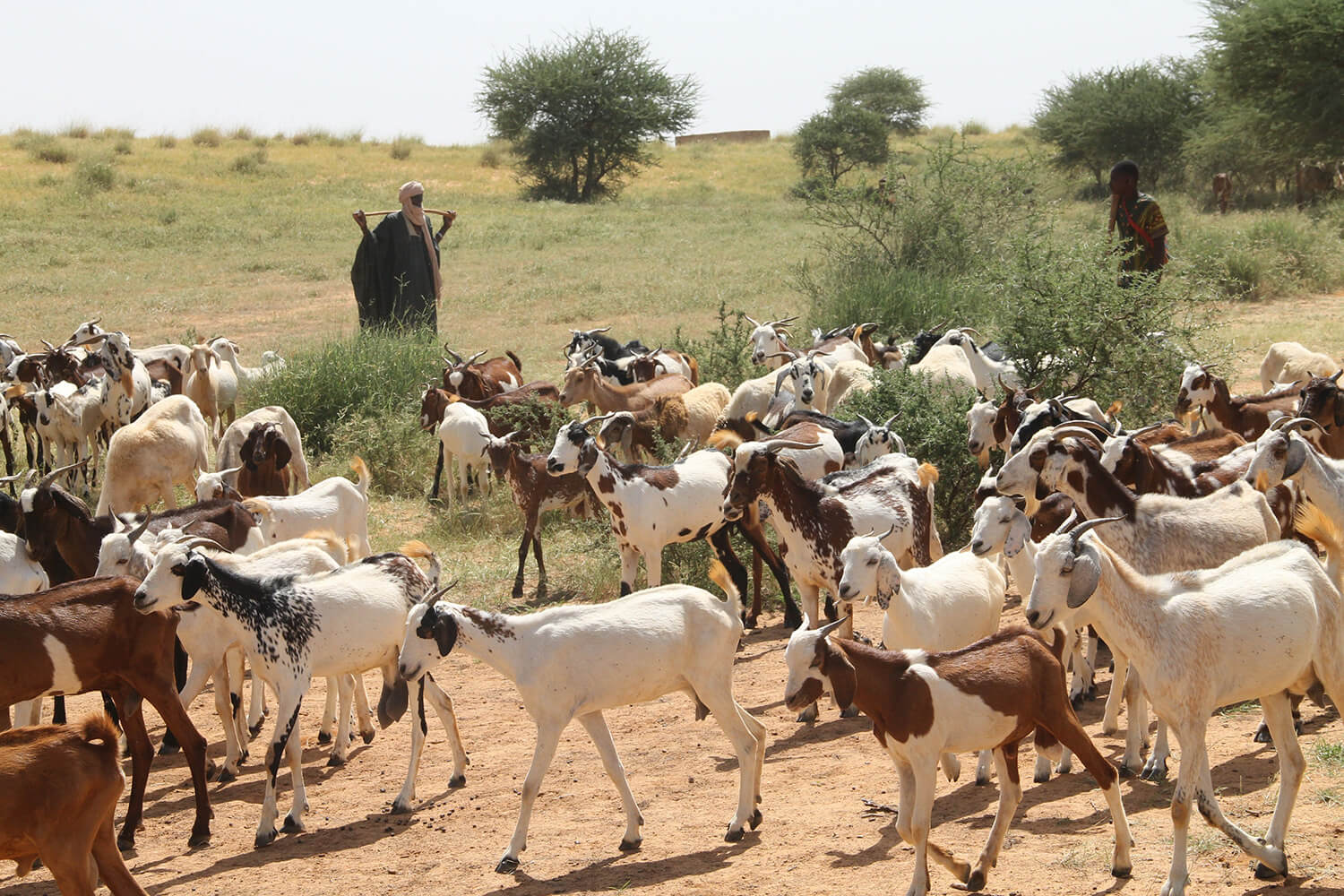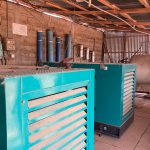In the Sahel region of Africa, there are very short rainy seasons (three months maximum) and extremely long dry times that could stretch to about nine to 10 months every year. No thanks to climate change; it is a new reality. And no one feels the impact like pastoralist communities in the region.
During these dry seasons, pastoralists travel long distances by foot with their cattle, searching for scarce pasture and water for their animals. As a result, they are becoming more vulnerable. And their conditions are worsening as the trio of COVID-19, global food crisis, and lack of access to information breed more uncertainties for them.
Over 300 million people inhabit the Sahel region. Of those, about 60% are crop farmers and pastoralists. With livestock farming making up 40% of the region’s total GDP, vulnerabilities and uncertainties for pastoralists could lead to food insecurity and other economic and environmental consequences.
A new early warning system provides solution
To help herders overcome these vulnerabilities and uncertainties, become more climate-resilient and precise in their decision-making, avoid food insecurity, and grow profit, Action Against Hunger, an international humanitarian organisation, created Pastoral Early Warning System or PEWS. This system allows pastoralists to receive and use artificial intelligence (AI)-powered data to guide their activities.
How it works
PEWS uses AI to process satellite imagery collected by the European Space Agency, mapping out areas with much vegetation and water resources. It also maps locations with depleted vegetation and water.
PEWS also recruits community members to collect information such as local market prices for livestock feed, the prevalence of various animal diseases, bushfires, heatwaves, and cases of insecurity.
These data and information are then collated and shared with pastoralists [sometimes in the form of maps] through radio, SMS bulletins and an online dashboard.
It helps herders know exactly where vegetation and water supply are in abundance to take their cattle. They also know areas with depleted vegetation and other early warning signals to avoid, ensuring their safety and food security and removing the guesswork from the activities.
Action Against Hunger initially launched the innovation in Mali and Niger in 2007. But it has since expanded to the other nine countries in the Sahel: Burkina Faso, Gambia, Mauritania, Senegal, Benin, Ivory Coast, Nigeria, Chad, and Togo.
Cedric Bernard, Action Against Hunger’s Food, Security and Livelihood West and Central Africa Regional Advisor, told Prime Progress (via email) that in the central Sahel countries of Mali, Niger and Burkina Faso alone, PEWS has reached about 2.6 million herders and smallholders.
Asked what the future expectations are, the agro-economist said the nonprofit envisages the institutionalisation of the project. It wants the programme managed in the future by herders-run groups in collaboration with state-run ministries.
“In 10 years from now, we expect the system to be managed by herders’ organisations (CSOs or civil society organisations) in partnership with the technical departments of national ministries. The two pillars of the institutionalisation process are contributing to this,” he said.
Explaining the two pillars, he said: “(1) We expect a younger generation of herders to use digital applications for real-time navigation and mobility. (2) We expect the accessibility of online training on climate adaptation and agroecological practices to be further developed and widely used by pastoral communities.”
But several limitations are hindering the expansion of the system.
“The extension of insecurity areas in the Sahel and Western Africa puts populations at risk. It limits data collectors’ ability to contribute freely (individual danger but also [the] destruction of communication infrastructures) and our capacity to conduct necessary participatory mapping of territories and identification of key surveillance spots,” Bernard acknowledged.
Poor or zero access to public data to map out pastoral infrastructure in the region is another challenge. “The data exist but are not shared with Civil Society Organisations, which strongly limits their usefulness,” he lamented.
In Nigeria, for example, Bernard said, “We do not have figures or data because there is no system of field data collection or data dissemination in place. We only produce a near real-time monitoring of biomass production. We recently have had exchanges with Nigeria because there is [a] big interest for the PEWS.”
And there is a third challenge. It involves the difficulty in consolidating and extending the network of field data collectors because the program is maintained through “short-term limited grants.”
Bernard said the network extension is necessary to “Increase the density in current areas to cover all areas of pastoral interests and extend the system to new areas in the same countries and neighbouring ones.” However, Action Against Hunger still hopes that “we will be able to mobilise resources to implement the system in [Nigeria]” and other countries.
The Sahel region of Africa faces extremely short rainy seasons and long dry periods, creating severe challenges for pastoralist communities reliant on livestock farming, which constitutes 40% of the region's GDP. These communities travel long distances to find scarce water and pasture, becoming more vulnerable due to climate change and other crises such as COVID-19 and the global food crisis.
To aid these communities, Action Against Hunger developed the Pastoral Early Warning System (PEWS), which uses AI to process satellite imagery and local data to map vegetation and water resources. This information is disseminated to pastoralists via radio, SMS, and an online dashboard, enabling them to make informed decisions and avoid depleted areas.
Initially launched in Mali and Niger in 2007, PEWS has expanded to nine other Sahel countries, reaching about 2.6 million herders. The future vision for PEWS includes management by herders’ groups in collaboration with national ministries, increased use of digital tools, and online training on climate adaptation and agroecological practices.
However, challenges remain, such as insecurity hindering data collection, poor access to public data, and short-term funding affecting network expansion. Despite these obstacles, there is an ongoing effort to secure resources to implement the system more broadly.






